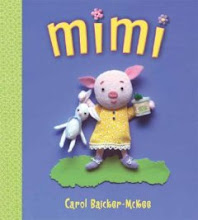
Illustration by Jessie Willcox Smith, public domain
There has been little discussion in the press or even the blogosphere about how schools will be affected by CPSIA - but that doesn't mean they aren't concerned, confused, and seeking guidance from both Congress and the CPSC. They are particularly worried about the ban on pre-1985 books (as well as the impact of testing on the costs of books and other supplies going forward), which flies in the face of the CPSC's assertions that schools have no pre-1985 books to worry about (more about this in a minute).
Michael Resnick, Associate Executive Director of the National School Boards Association, wrote to the CPSC on March 6th, urging them to recognize the safety of books and exempt all of them. He noted that schools are concerned about liability even during the one year testing stay, and need some guidance immediately. So far, I do not believe any has been forthcoming (based on a discussion with a school official following the law and the lack of any follow-up correspondence on the NSBA website; I'm awaiting comment from their go-to guy).
Resnick further asks that schools be exempt from the law all together. A public school official I spoke with today (off the record) noted that her school district is well aware that many of their ordinary, necessary actions would classify them as "manufacturers" under the guidelines issued to small businesses etc. and thus either subject them to unaffordable testing or force them to drastically change the way they operate. For example, schools frequently assemble and bind packets and books for students to use and keep (with plastic comb, stapled, or glued bindings); they put together science kits; they make art projects that are intended for use by children; and many of their fundraising and charitable projects also involve "manufacturing" things for children. (For example, parents at my kids' elementary sell handicrafts, many intended for children, at the holiday shop that funds many school extras; the kids assemble toiletry-and-book packages for kids in homeless shelters; and the school sponsors book drives either to promote literacy or to donate to children locally or abroad.) Recognizing these issues, Mr. Resnick asks:
"As you continue to address enforcement and implementation issues, NSBA urges the Commission to exempt local school districts from the lead level requirements under the law; or at the very least, to establish a transition period that would enable public schools and libraries to meet the spirit and intent of the law without creating financial burdens on states and local communities in this dire economy and extreme reductions in their revenues. "
You can read the whole letter here.
Meanwhile, the CPSC seems to be getting their information about how schools are affected from some other source - some unnamed "trade associations" (not sure who the public schools trade association would be). On page 17 of Nord's response to Rep. Dingell, the Commission asserts:
Based on information from the trade associations with information regarding books in libraries and schools, the Commission staff understands that most textbooks in schools are less than ten years old. Likewise, the information received suggests that most library books lent to children are recycled approximately every 18 lending cycles or three years. Thus, it appears that few of the books being provided to children in their schools and libraries would be more than 20 years old.
The school official I spoke with today just laughed at that statement; she said if schools were forced to discard all their pre-1985 materials, they'd basically stop being operational. Although schools do strive to replace text books more often than that, occasionally they get stuck with a series for longer, especially in subjects where the information changes little (math for example) or where the books are for a minor subject (like Health). Not only is buying new sets of textbooks expensive, it's a slow process, more akin to turning an ocean liner than swinging a Mini Cooper around - it takes years for most districts to go through the textbook adoption process. The bigger problems though, are with things like classroom sets of novels (which get used for a few weeks at a time rather than all year), classroom libraries, and books in the school library, which most certainly not are not fully recycled every three years.

Another problem for schools, libraries, and used booksellers, is the high number of books that lack accurate print date information. For example, the easy readers above (all still in good shape after heavy use by my 3 kids) were purchased new in the 1990s, and I suspect were printed sometime near then - but they all have copyright dates prior to 1985 and no print date information at all. A librarian I know said some libraries could track likely print dates through purchase records, but that would take hours of research, especially since few libraries had gone electronic in the mid 1980s. And it would still leave them uncertain in many cases and vulnerable to a dispute with a disgruntled patron. (Keep in mind the expenses of defending a lawsuit are typically not awarded even if you win, so every lawsuit is bad news.) If the law remains as is, they'll probably just toss questionable books.
All of this is a huge headache for school districts - and for Congress and the CPSC. On the one hand, if they enforce the law for schools, they'll send school budgets out of control and probably deprive many students of necessary materials at least in the short run. On the other hand, if they exempt schools, they open themselves to the criticism that they either don't care about kids since they're willing to force them to wallow in dangerous lead-laden environments 6 hours a day, 180 days a year, or that lead in things like books and school supplies really isn't much of a threat to kids at all. It's basically a lose-lose proposition, which is probably why the CPSC guy I spoke with danced around the issue, promised to get back to me, and never has. And my congressmen have been utterly silent in response to my specific questions too.

The book above, about a school that's as ridiculous as the CPSIA, is much funnier than the law because it's fantasy. It's also not clear whether it's a banned book, since it was printed in 1985. For quite a while, CPSC seemed to be using that as the year that was safe going forward, which would make this copy okay to sell or distribute - but more recently, agency spokesmen have been using a new cut off year - 1986 - which would make it toxic waste. (See, for example, this AP article).
 These books above are all well used cheap paperbacks, all printed in the 1970s or earlier. The pages have yellowed a bit and a couple of the most heavily read have mangled spines (like the copy of The Four Story Mistake by Elizabeth Enright which was part of the "Bathtub Books" collection in my family growing up - it's a really excellent, old-fashioned yet timeless story about a large family living in an interesting old house in the 1940s). But all are perfectly usable - and are still re-read by me and my kids occasionally and are similar to books still found in many classroom libraries. This is part of what CPSC doesn't get - old books, even the cheap, not particularly well-made ones, typically have very long lives. The good quality hard covers go on and on and on, and may well outlast new paperbacks. I can only remember having thrown away about a dozen books in my whole life - I've donated or passed along plenty of others - but few have been in such bad shape they only deserved tossing.
These books above are all well used cheap paperbacks, all printed in the 1970s or earlier. The pages have yellowed a bit and a couple of the most heavily read have mangled spines (like the copy of The Four Story Mistake by Elizabeth Enright which was part of the "Bathtub Books" collection in my family growing up - it's a really excellent, old-fashioned yet timeless story about a large family living in an interesting old house in the 1940s). But all are perfectly usable - and are still re-read by me and my kids occasionally and are similar to books still found in many classroom libraries. This is part of what CPSC doesn't get - old books, even the cheap, not particularly well-made ones, typically have very long lives. The good quality hard covers go on and on and on, and may well outlast new paperbacks. I can only remember having thrown away about a dozen books in my whole life - I've donated or passed along plenty of others - but few have been in such bad shape they only deserved tossing. One funny note about ratty paperbacks: one of my kids used to consistently select the most bedraggled looking copies when I gave the kids money to get a book or two at a library sale or used bookstore. When I asked him why he picked those particular books over the nicer ones, he said (quite logically) that the beat up ones had obviously been read many times which meant they were probably good.
 Illustration for Ring o' Rosies by L. Leslie Brooke, public domain
Illustration for Ring o' Rosies by L. Leslie Brooke, public domainFinally, a reminder to consider joining the April 1st rally in DC, either in person or via the webcast at www.amendthecpsia.com. And check out recent coverage of the law on Walter Olsen's Overlawyered, the Deputy Headmistress's Common Room, Valerie Jacobsen's Bookroom Blog, and Rick Woldenberg's Learning Resources, Inc. blog. (I have no idea why Blogger is underlining all this text, but it won't stop!)





















No comments:
Post a Comment